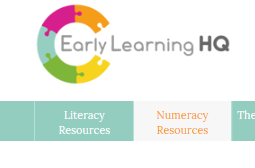The OECD published results from the 2015 PISA, focusing on Collaborative Problem Solving. More information can be found by clicking here.
Category Archives: Numeracy
‘Learning to Learn’ Approaches: The Scottish Attainment Challenge
Meta-cognition and self-regulation approaches have consistently high levels of impact, with pupils making an average of eight months’ additional progress. The evidence indicates that teaching these strategies can be particularly effective for low achieving and older pupils.
If you’d like to find out more click here.
Education Endowment Foundation Scottish Learning and Teaching Toolkit
The Education Endowment Foundation now have a Scottish version of the Learning and Teaching Toolkit. It can be accessed here.
Falkirk Quality Assurance and Moderation – Key Messages CLPL 27.11.17
It is hoped that a representative from each Falkirk school/centre will attend this session which will cover the key messages on moderation and provide an opportunity to be guided through the materials on the Moderation Hub. The attendee can be at any level, however, following the session there would be an expectation that the attendee would distribute the information/key messages in their own school/centre. Sign up through CPD manager, course reference LB117.
Early Numeracy Approaches
For more information based on extensive evidence click here.
Early Years Resources
Here you will find a collection of early years maths / numeracy resources designed to help early years practitioners support children in their early stages of learning mathematics. In particular these resources are designed to help children’s emerging understanding and use of numbers and counting and lay strong foundations in mathematics.
Sumdog’s free Falkirk mathematics contest – one week to go!
Flipped Learning
Evaluation of an independent Education Endowment Fund trial of Flipped Learning with the aim to raise the attainment of disadvantaged children and young people. The trial involved pupils undertaking some learning prior to lessons, freeing up class time for feedback and personalised support. For more information click here.
Equations and Inequations – Making Mathematics Accessible to all
More than ever, students need to engage with mathematical concepts, think quantitatively and analytically, and communicate using mathematics. All these skills are central to a young person’s preparedness to tackle problems that arise at work and in life beyond the classroom. But the reality is that many students are not familiar with basic mathematics concepts and, at school, only practice routine tasks that do not improve their ability to think quantitatively and solve real-life, complex problems.
Find out more here.
10 Questions for Mathematics Teachers
This report delves into topics such as, “How much should I encourage my students to be responsible for their own learning in mathematics?” or “As a mathematics teacher, how important is the relationship I have with my students?”. It gives teachers timely and relevant data and analyses that can help them reflect on their teaching strategies and how students learn.
Find out more here.











